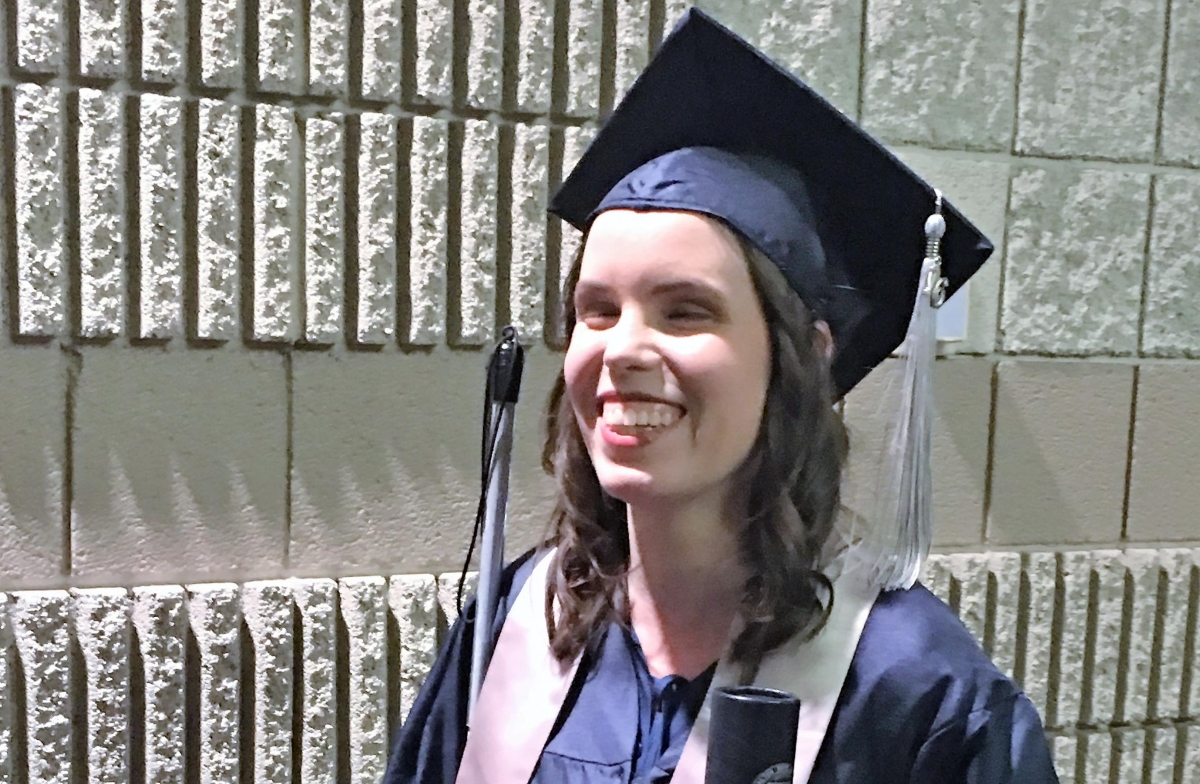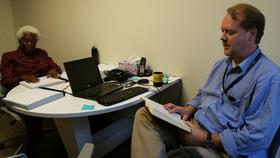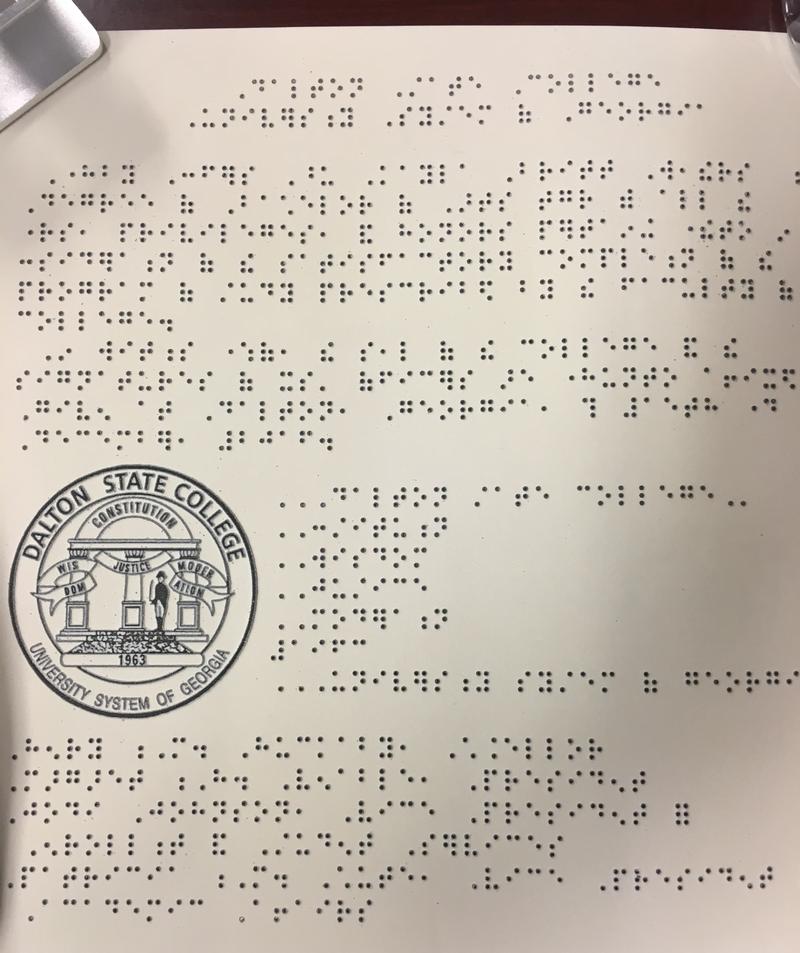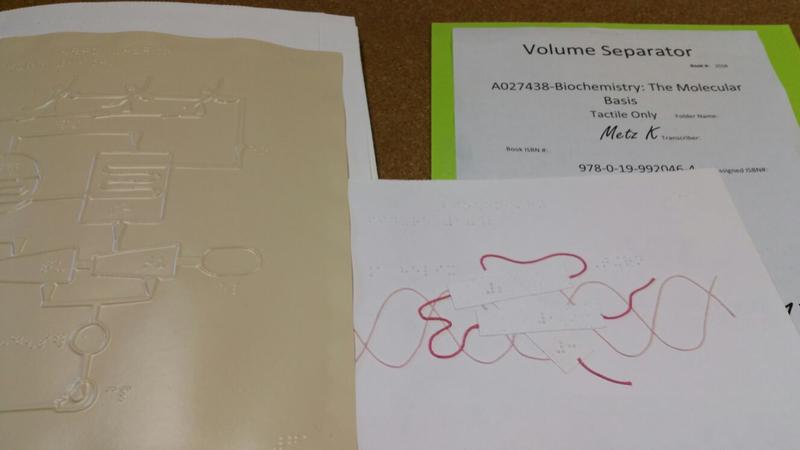Atlanta Braille Publisher Helps College-Bound Blind Students

Photo Courtesy Kayla Weathers
An audio version of this story
When it came time for college, Kayla Weathers said she thought she was prepared.
She attended public school for most of her educational career, graduating from the Georgia Academy for the Blind in Macon. Weathers, who is blind and uses a white cane to get around, said her first semester at Dalton State College in North Georgia was difficult.
“I didn’t do terribly, like I didn’t flunk out or anything, but I was like I need to, you know, have more confidence in travel and like cooking for myself and things,” Weathers said.
For blind students, some classes can feel out of reach because materials like textbooks and exams may not be readily available for those courses in a braille or audio format.
But there are groups trying to make these materials more accessible. The AMAC Accessibility Solutions and Research Center at Georgia Tech was founded in 2006. Its braille production center is one of the few in the United States catered to blind and visually impaired college students.
Self-Advocacy
Weathers said in addition to gaining more independent living skills, she said she had to learn how to advocate for herself, such as requesting accommodations from professors. So in 2011, Weathers took a gap year to attend a blindness skills training center in Minneapolis.
Weathers explained to professors at least a semester in advance that she would need class materials to be transcribed to braille or in an electronic format that she could listen to. During exams, a professional scribe sat next to her and she would dictate her answers. The scribe would then transcribe her braille answers to the Roman alphabet. 
“It’s kind of funny. I tell people I’m a visual learner even though I’ve been totally blind my entire life,” Weathers said. “But to really understand something, especially academically, I would prefer to read it and have it under my fingers because I feel like it sticks in my head better.”
University System of Georgia
Weathers went on to make history in December 2016 as the first fully-blind student to graduate from Dalton State.
The University System of Georgia, which consists of 28 public colleges and universities, has an average of 350 students each year who are blind or visually impaired.
These schools send requests for braille transcription services to the AMAC Accessibility Solutions and Research Center at Georgia Tech.
Guy Toles, AMAC’s braille services manager, said his department processes about 400 orders per year. Many of these orders are for science, technology, engineering and math courses.
“Those subjects require advanced codes, the need to see things in a spatial arrangement, but then also, the maps, charts, diagrams, and figures that have to be recreated in order for the braille reader to feel and understand a concept,” Toles said.
Heavy Books
Toles shows off a biochemistry textbook, which includes diagrams of molecules that mimic a collage art project. Strings of yarn and strips of paper are embedded amidst the braille.

Since braille takes up more physical space, Toles said a math book that is 1,000 pages could easily be “5,000 braille pages.”
Braille books are more expensive than average college textbooks. Converting just five chapters of a science book, the average order, into braille can cost up to $15,000. But once it’s on hand, braille reprints cost about 5 percent of the original cost, or about $500.
“The types of subjects that I see students who are blind and vision impaired are enrolled in now from an aeronautical school, to some of the highest levels of math, computer coding. I think that’s a sign that equal access is only going to improve,” Toles said.
That’s what Kayla Weathers is working on now as she applies to graduate school. She said that one day she wants to teach other blind students how to navigate college.
9(MDAxODM0MDY4MDEyMTY4NDA3MzI3YjkzMw004))








